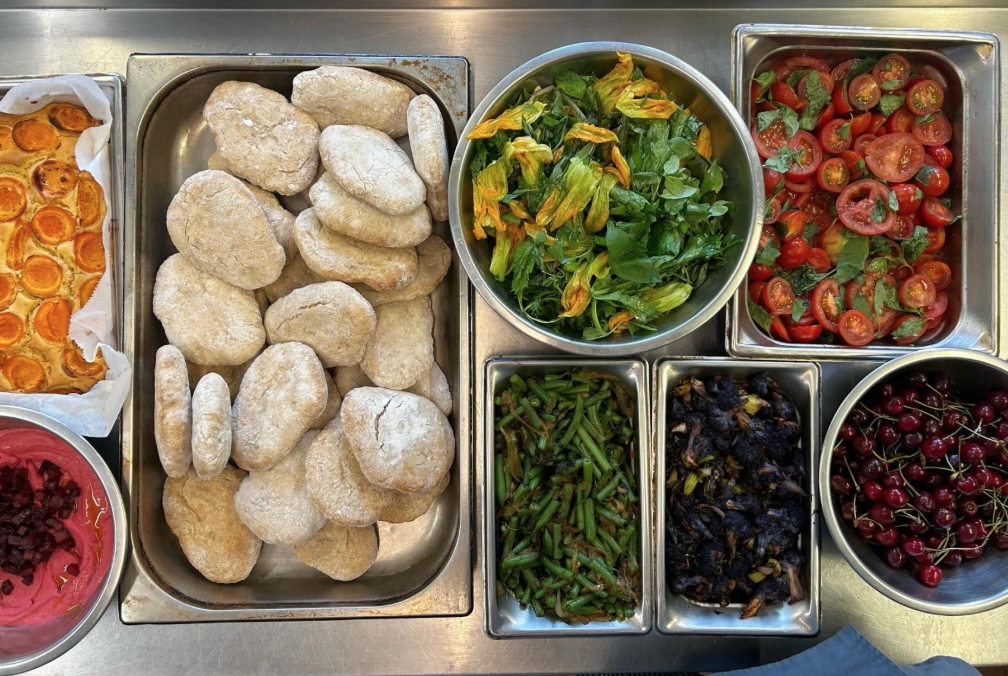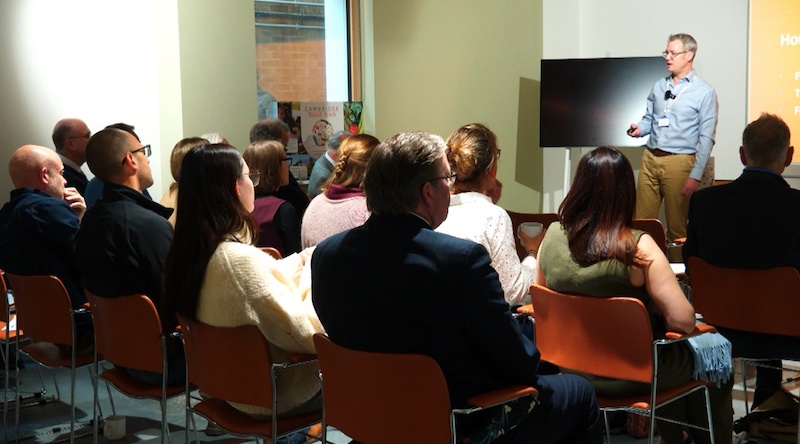This blog unpacks what food hubs are and their role in connecting smaller-scale, agroecological and organic producers with public sector markets.
%20(2).jpeg)
The Procurement for Good Project (PFG) aims to support place-based networks that help increase the availability of local, sustainably produced food by smaller-scale producers on the public plate. We are tackling this challenge by accompanying four food hubs – Cambridge Food Hub and the Better Food Shed at Growing Communities in England, Galloway Food Hub in Scotland and Cultivate Food Hub in Wales – on their journey to link up with public sector buyers in schools, hospitals and other public institutions in their region. We are also reaching out to emerging food hubs in Northern Ireland.
So what is a food hub?
Drawing on research comparing food hubs in the UK and USA by the Food Research Collaboration, the basic function of food hubs is to aggregate produce directly from local or regional producers, and manage the distribution, marketing and selling of local food at different scales. Hubs may sell produce directly to individual consumers or to commercial customers such as wholesale veg box schemes, restaurants or schools. In terms of infrastructure and logistics, hubs either directly run a warehouse for food storage and transport for food distribution or coordinate these activities with external parties that have more expertise and access to adequate infrastructure.
Sustainable, values-led food hubs
Many conventional wholesalers offer similar services. However, food hubs, in particular sustainable food hubs, differ from traditional wholesalers and food distributors as they are values-led organisations. This means that they apply a set of standards or values - supportive of environmental sustainability and often additional ethical principles - to their sourcing and how they operate. While some food hubs focus on building a local and/or more sustainable food supply chain with a strong commercial basis, others aim to make local, sustainably produced food available while also delivering wider social and environmental benefits. For example, many food hubs that embrace a values-led approach also engage in community development and food education that go beyond the organisation’s economic scope. Relatedly, food hubs may operate as for-profit businesses or as non-profit organisations, mainly funded through trading revenues or grants, sometimes complemented by commercial loans or crowdfunding.
.jpeg)
In terms of a values-led approach, PFG food hub Growing Communities (GC) and its wholesale arm, the Better Food Shed, based in London, are committed to ‘feeding urban communities in a fair and sustainable way in the face of corporate dominance and climate change’. Accordingly, their operating principles include sustainable sourcing, low-impact distribution, fair trade enacted as a living wage employer, healthy eating, transparency and trust as well as big picture thinking. As part of their mission to strengthen communities around good food, they launched the Better Food Traders Network that supports and promotes ethical food retailers across the UK specialised in selling locally grown, planet friendly food. Similarly, the Cambridge Food Hub, another of the four PFG hubs, aims to be fair, progressive and sustainable in all its actions, while working on all aspects of food: from production and consumption to education and research.
Overall, sustainable, values-led food hubs help to increase the supply of local, sustainably produced food and shorten food supply chains in a way that is mutually beneficial to both growers and consumers. As this Wicked Leeks article puts it, food hubs are antidotes to an economic model dominated by supermarkets and can, therefore, play an important role in fixing our broken food system.
Food Hubs: New Routes to Public Sector Markets for Small-scale Producers
However, going beyond catering to individual consumers and smaller-scale businesses, food hubs can constitute an effective means of connecting agroecological and organic smaller-scale food producers with public sector buyers in schools, care homes, hospitals and prisons.
Indeed, several success stories already illustrate this type of collaboration. One inspiring example is the Hackney School Food Pilot. In this pilot, growers supplying the Better Food Shed at Growing Communities joined forces with school chef James Taylor to introduce organic fruit and veg into every meal in two primary schools - Sir Thomas Abney and Harrington Hill - in Hackney, London.

Another successful initiative is OxFarmtoFork, a collaborative and thriving local food hub based in Oxfordshire. The hub brings together 20 small-scale agroecological producers from Oxfordshire. In order to become a hub member, producers sign up to the Oxford Good Food Charter that encapsulates a vision for a healthy, fair and sustainable food system in Oxfordshire. Collectively, the growers supply sustainably produced food, predominantly vegetables, to chefs from 19 colleges associated with Oxford University.
While sustainable, values-led food hubs are united by their role of aggregating and distributing local food based on ethical principles, they can take different forms, including producer hubs, community hubs, school hubs, shop hubs, farmers’ market hubs, food co-ops or buying groups.
Read Part 2 of our blog series on food hubs to find out more about the range of food hub options available depending on your context and the needs of your community.
Browse our Food Hub Diaries for updates on the PFG hubs’ journey to accessing public sector markets in their region.
Latest news




